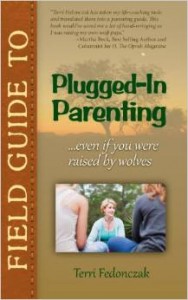“Do you ever feel superstitious about your writing time? Like you have to write in the same place, at the same time, after eating the same thing, to recapture the same success of a particular writing day that went well? Or do you find yourself giving up on a day’s writing because you weren’t able to do those things?”
This is an intriguing set of questions because whether or not a writer considers themselves superstitious about their writing practice, it speaks to underlying strategies and challenges around having a consistent writing practice, which is something I recommend for most writers. Let’s discuss. [more…]
Create a routine or container for your writing practice, but don’t be afraid to experiment and refine. Being a creature of habit is useful for writers, but we don’t have to be locked in.
I’d love to answer them for you in my column.






 My book went from a dream to a reality. It’s now on
My book went from a dream to a reality. It’s now on  Terri Fedonczak wants to live in a world where girls recognize their own power and choose to use it for good. On a trip to South Africa, Terri saw the power of the lioness and how they support their pride; it was a lightning bolt of realization that her mission is to bring the power of the pride to girls and their parents. Terri was a commercial real estate agent for 16 years until a bout with breast cancer transformed her life in 2010. She realized that trading money and status for time with her four girls and patient husband was not quite the deal she thought it once was. She left sales to become a certified life coach and embark upon a journey of spreading the message of girl power far and wide.
Terri Fedonczak wants to live in a world where girls recognize their own power and choose to use it for good. On a trip to South Africa, Terri saw the power of the lioness and how they support their pride; it was a lightning bolt of realization that her mission is to bring the power of the pride to girls and their parents. Terri was a commercial real estate agent for 16 years until a bout with breast cancer transformed her life in 2010. She realized that trading money and status for time with her four girls and patient husband was not quite the deal she thought it once was. She left sales to become a certified life coach and embark upon a journey of spreading the message of girl power far and wide.